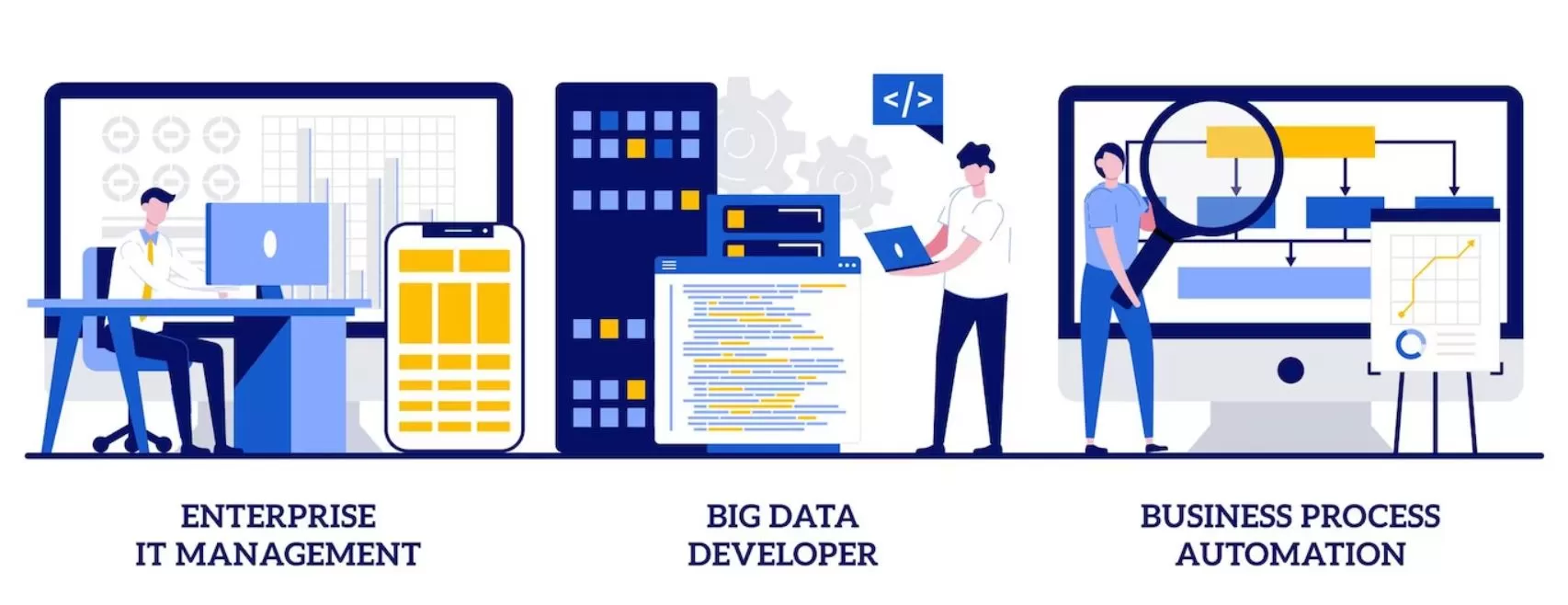
Enterprise Application Development for Industries
Enterprise application development refers to the process of creating software applications specifically designed to meet the complex needs of large-scale organizations. These applications are tailored to address critical business functions, processes, and workflows within an enterprise environment. Here are some key aspects of enterprise application development:
- Customization and Scalability: Enterprise applications are highly customizable to align with the unique requirements of an organization. They are designed to handle large volumes of data, accommodate complex workflows, and integrate with existing systems. Scalability is a crucial aspect, allowing the application to accommodate growth and handle increasing user loads without sacrificing performance.
- Integration and Interoperability: Enterprise applications often need to integrate with various internal and external systems, such as databases, legacy systems, third-party software, and APIs. Seamless integration and interoperability ensure smooth data exchange and process flow across different platforms, enhancing efficiency and eliminating data silos within the organization.
- Security and Compliance: Enterprise applications deal with sensitive and confidential data, making security a top priority. Robust security measures, including authentication, data encryption, role-based access controls, and compliance with industry regulations, are built into the application's architecture. This ensures data privacy, minimizes the risk of unauthorized access, and helps organizations meet regulatory requirements.
- Workflow Automation and Business Process Management: Enterprise applications streamline and automate complex business processes, eliminating manual tasks and reducing human errors. They often incorporate workflow management capabilities, allowing organizations to define, manage, and track workflows across departments. This improves productivity, reduces turnaround times, and enhances collaboration within the organization.
- Reporting and Analytics: Enterprise applications provide powerful reporting and analytics capabilities, enabling organizations to gain actionable insights from their data. These applications generate comprehensive reports, dashboards, and visualizations, helping stakeholders make informed decisions, identify trends, and monitor key performance indicators (KPIs). Advanced analytics capabilities, such as predictive analytics and machine learning, may also be integrated to drive data-driven decision-making.
- Mobile and Cloud Compatibility: Modern enterprise applications are designed to be compatible with mobile devices and cloud infrastructure. Mobile compatibility allows employees to access critical business information and perform tasks on the go, while cloud compatibility provides flexibility, scalability, and accessibility across different devices and locations.
In summary, enterprise application development involves the creation of software applications tailored to the specific needs of large organizations. These applications are characterized by customization, scalability, integration capabilities, security, workflow automation, reporting, and analytics. By leveraging enterprise applications, organizations can optimize their processes, enhance collaboration, improve decision-making, and gain a competitive edge in their respective industries.
Do you have any customize software development requirements, please get in touch with us today : +91 8652362400






